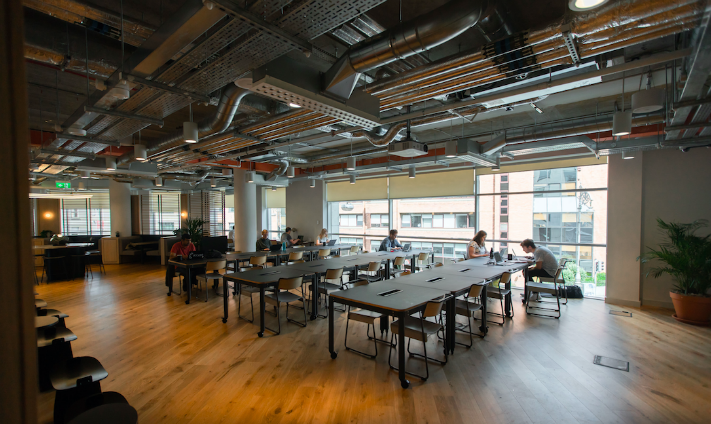We’ve all been there… you awake to find it’s pouring outside and the idea of trudging through puddles to arrive at your office, soaked and feeling sorry for yourself, fills you with dread.
If it’s a day you usually work from home, you’ll be able to retreat to your home office (or kitchen table) and thank the universe that although the pandemic was horrendous on varying levels, at least it brought remote working to the masses.

But if you’ve an office job and it’s a day you’re supposed to be on site, should you be allowed to opt out and work from home for the day instead?
That’s one of the questions we asked* in this year’s Jobbio Work Happy Index 2024 survey, which aims to establish the current state of play around workplace issues including remote work, pay transparency and employee benefits.
An overwhelming 58.17% of survey respondents admitted they would rather not commute to the office when the weather is bad, compared to 22.18% who disclosed that the weather wouldn’t have an impact on their in-office attendance, and 19.6% neutral on the issue.
Flexibility foe
Statistics show the daily commute is more perilous in bad weather too. According to Drive Weather, an app designed to help drivers avoid inclement weather conditions, rain has caused more vehicle accidents than snow, ice or any other hazardous weather condition in the last 10 years, meaning your route to the office might not just be uncomfortable but dangerous too.

On the face of it, today’s workforce may appear like precious little snowflakes but the results prompt the question: Is insisting employees go to the office on certain days, even if it doesn’t make logical sense, the ultimate foe of flexibility?
Research has found that forcing staff back to the office has a negative impact on morale, productivity and profits. Conversely, separate data shows that giving employees the authority and autonomy to plan out their working day results in stronger job performance, higher job satisfaction and a greater commitment to the organisation they work for.
And if you add a stressful, unnecessary commute into the mix, you can understand why asking workers to cram themselves onto a packed bus or train (and most likely into someone’s armpit) because it’s too wet to cycle or sit in bumper-to-bumper traffic isn’t conducive to starting the working day off on the right foot.
Want to know more? Read our report findings in full or check out more career insights including our Cheat Sheet series which includes advice on how to write your best ever CV, how to approach a cover letter, and what the different interview stages really mean.
*Methodology











